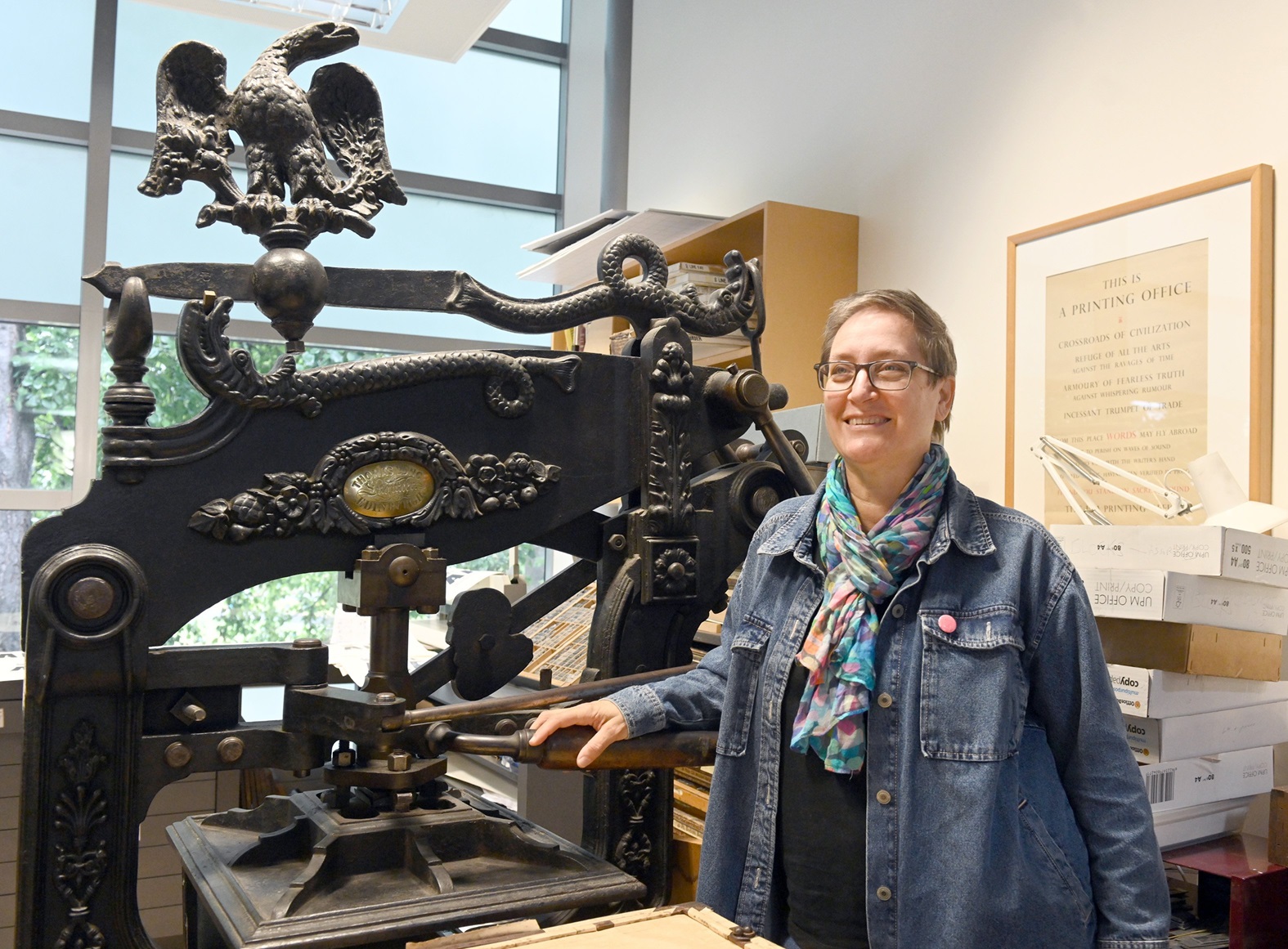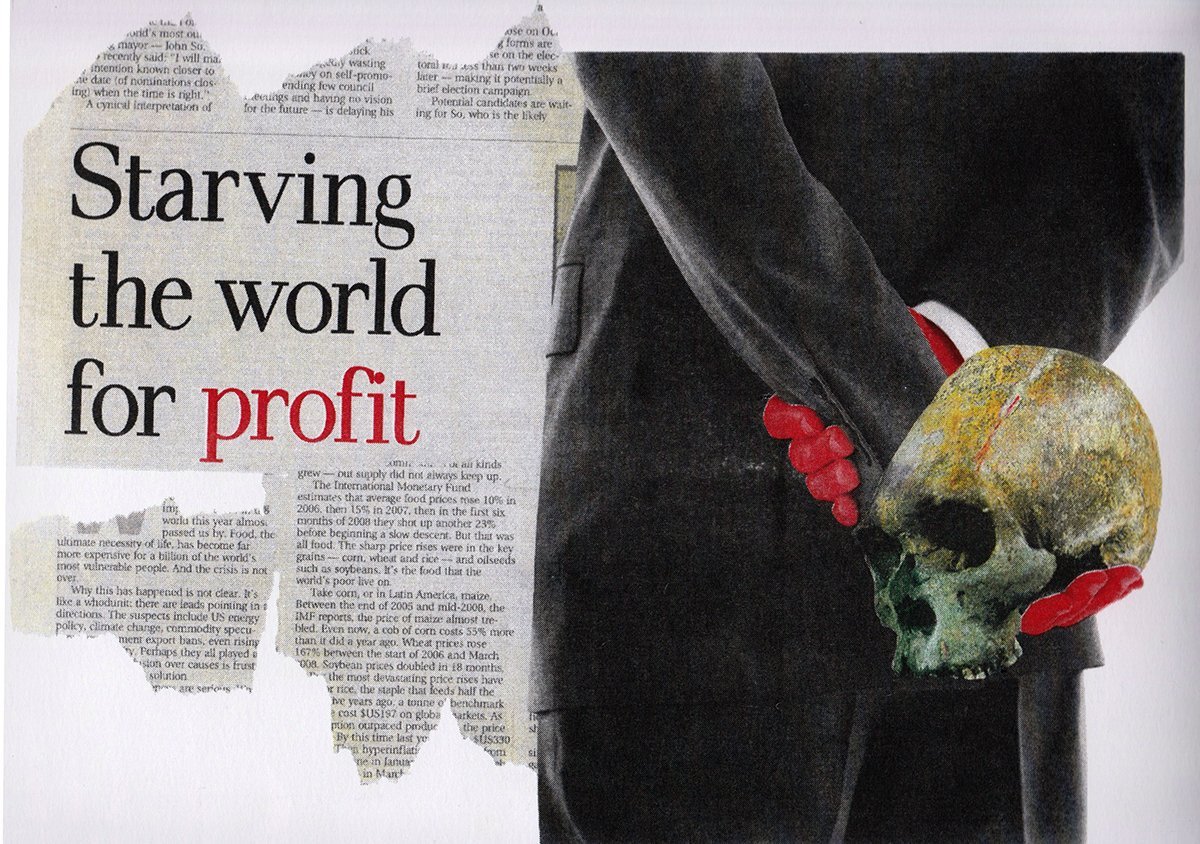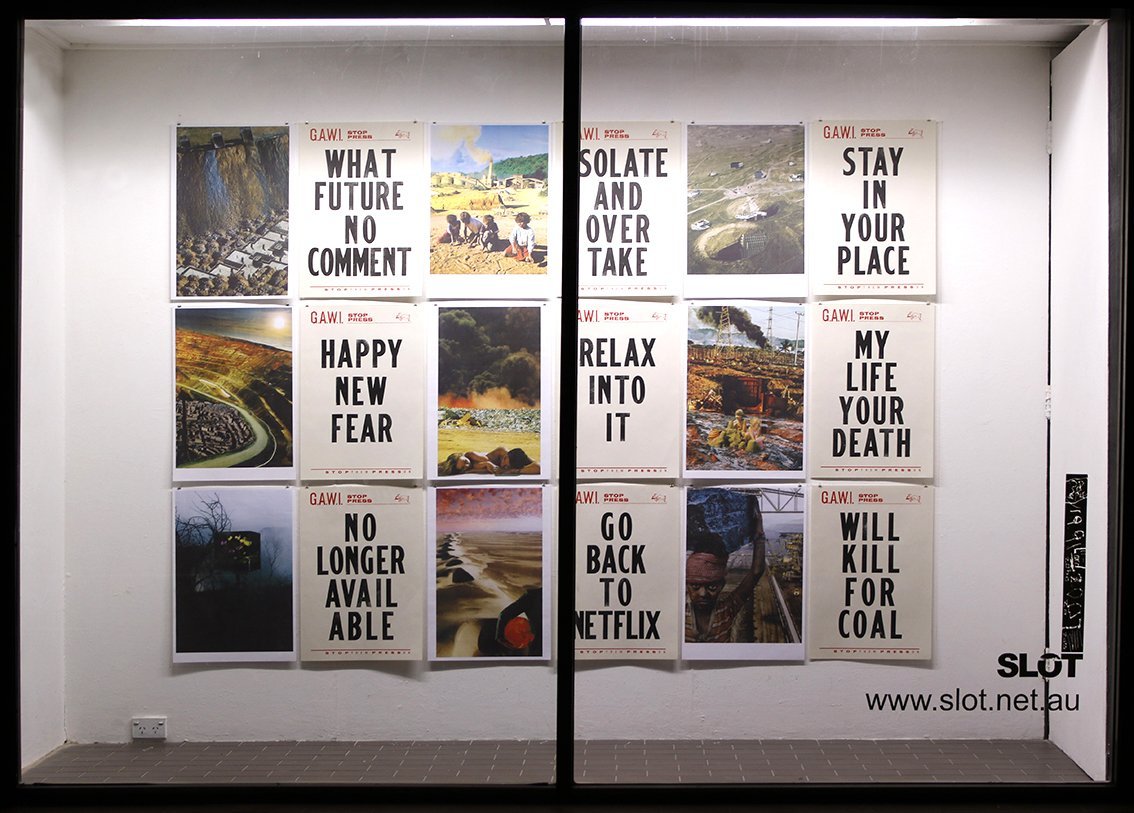
Dr Caren Florance lovingly runs a hand over an early 19-century royal Columbian "Eagle" handpress in the Otakou Press Room at the University of Otago.
It was a chance opportunity to work with machines like this that changed Florance’s life.
At university studying English — as any great book lover does — she took a bibliography and scholarship class, which involved a letterpress workshop at art school.
"That just changed everything. It was one of those things where everyone else was setting their poem for this book we made and I had set my poem and the title page and then the colophon [the publishers emblem].
"Because I was just like, this is my jam."
She loved how it was upside down and back to front.
"It just felt so exciting to set words by hand."
So exciting, in fact, she "busted a gut" to get into art school so she could get back to that equipment.
"I went there to get to the letterpress and discovered that people were using it to make artist books. And that just shifted everything.
"So now I make normal books but I also make artist books [works of art in the form of a book]."
Florance, adjunct assistant professor in the Centre for Creative and Cultural Research at the University of Canberra, puts her love of letters and words down to her love of books, which developed, she thinks, from not knowing she needed eye glasses as a child.

When the Australian government introduced eyesight and dental checks in schools in the 1970s, it was discovered she needed glasses.
"Suddenly I had this sharp world but by then I’d got the book bug."
Florance also remembers her great-aunt sending her little pads of multi-coloured paper which she would fill with stories and pictures and send back to her.
"I remember doing them. It was fun to make a book."
These days Florance, who was based in Canberra for 35 years, makes books — from beautifully made fine press books to photocopy zines, little pamphlets that have fun things in them, often produced under the imprint Ampersand Duck.
"Then in between is this whole world of artist books, which can be any shape, they can be unique or an edition of 50 or whatever."
Sometimes they are repurposed dictionaries or encyclopedias, made out of recycled materials, a collection of a printmaker’s works or it is people wanting to publish their own stories in an imaginative way.
As many book artists use other creatives’ material in their creations, Florance used her PhD at the University of Canberra to try to work out a way she and poets could collaborate equally on a work.
So she made elaborate books using poetry by "real poets, in real time", but also created poetry books for poets to sell at their readings.
"They were versions of the sort of things I was making. I really like working with poets because they think differently and it makes me think differently."
In a collaboration with poet Melinda Smith the pair reimagined text from the Old Parliament House sign room.

"So it was sort of like trying to make it a good deal for the poet and for the artist, rather than just making work that uses someone else's ideas. And I actually got a good deal out of it, and it was an interesting exercise."
To exhibit the works she made as part of her PhD, she created different reading zones in a gallery in Canberra.
"I think my best idea of my PhD, apart from the being equitable with the poets, is I made a room, so there was a kitchen table where you could sit and read smaller books and there was a lounge area where you could read the sort of the poets' books and zines and things."
She found people struggle to know how to read or handle artist books and they often sit on a shelf as people do not know why they are made or who they are for.
So at auction she bought a large newspaper reading table originally from the National Library of Australia to put the huge books she had made.
"I just wanted them to recognise, or feel comfortable in a space to approach that book.
"We all know what a bathroom is, we all know what a bedroom is, but if they can feel comfortable looking through a book in a space that suits the book, if they're something they can actually sit comfortably with, it might make a difference."
Artists are often concerned about damage to their books if displayed, requiring people to put on gloves or chaining books to tables. In libraries and museums they are often displayed behind glass.
"It’s a risk. If you want people to engage with it, then you have to take risks.
"I did get one page stolen from one book and luckily I had a spare and I only realised it when I sold it to someone and realised there was a piece missing."
Florance had hoped to do a similar exercise in other places but Covid put paid to that, although she hopes she may be able to resurrect the idea.

Creating books was really satisfying for Florance, even though it can be dirty and painstaking work at times.
"There's this sense of achievement. I've got something in the world.
"It's this thing that's going to hopefully outlast me, maybe. I think every time I get a buzz."
Over the years she has amassed much of the equipment to make her own books. By getting to know old printers and those in industry she has been able to collect presses and type when they closed down.
"I love the wood type because it's always, no matter if you have, you know, all the letters and multiples of the letters, they're always different because they age."
Then in 2021, her close friends Michael Hudson and Jadwiga Jarvis, who ran Wayzgoose Press died, and as executor Florance spent 18 months sorting their estate.
She inherited their letterpress equipment and their large type for making posters.
"It was very nice of them to basically leave me their letterpress and leave me the money to buy the shed. And basically Yadwiga said stop doing all this other stuff, just get on with it."
She has recently moved on to a property in Bega, New South Wales, 2.5 hours south of Canberra, where she has created her "dream, forever home" — including a large shed built to house her three printing presses, 16 cabinets of type and bookbinding equipment.
It has also enabled her to unpack her collection of books that have been in a storage unit, making friends again with old favourites.
"For the next 10 to 15 years I’m going to be stable and productive ."














